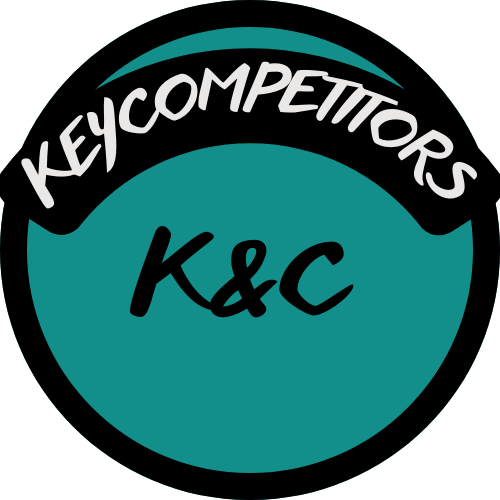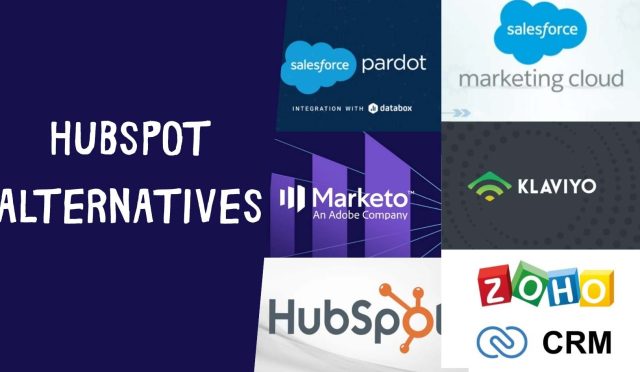Introduction
This analysis of Twilio competitors explores the competitive landscape of the Communications Platform as a Service (CPaaS) market, where Twilio Inc. (TWLO) is a leading player. The Twilio competitors include a mix of established communication providers, cloud-based platforms, and specialized API providers, all vying for a share of the growing market for programmable communication tools. Understanding the strengths and weaknesses of these Twilio competitors is crucial for businesses seeking to enhance their communication capabilities and for investors evaluating the competitive dynamics of this market.
Twilio and The CPaaS Revolution
Twilio has been a pioneer in the CPaaS market, offering a cloud-based platform that enables developers to integrate communication features like voice, messaging, and video into their applications using APIs. This innovation has empowered businesses to build cutting-edge communication solutions and enhance customer engagement. However, the CPaaS market is dynamic and competitive, with several players providing alternative solutions and features.
Key Twilio Competitors
This analysis delves deeper into some of the most prominent Twilio competitors:
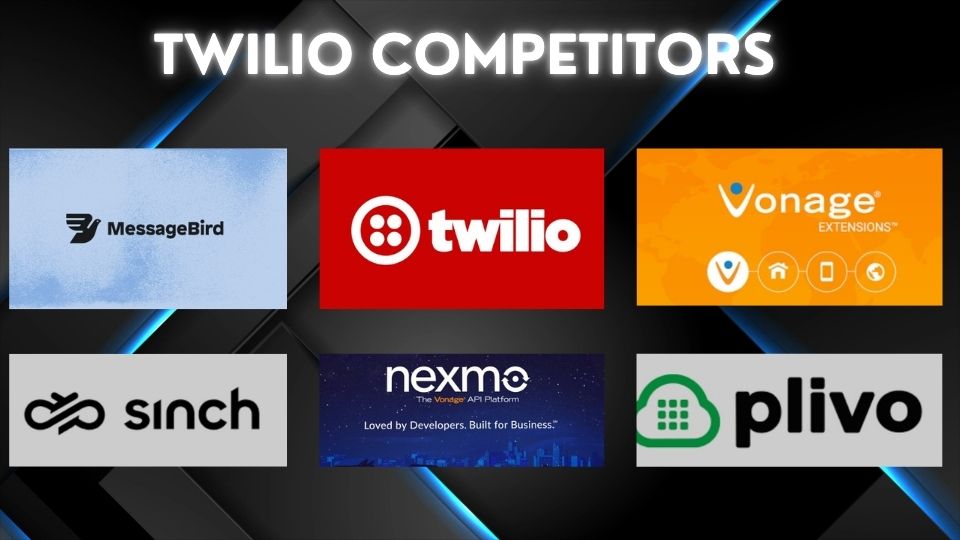
Company Overview
| Feature | Twilio | Vonage | Plivo | Nexmo | Sinch | MessageBird |
| Founded | 2008 | 1998 | 2011 | 2010 | 2008 | 2011 |
| Founder(s) | Jeff Lawson, Evan Cooke, John Wolthuis | Jeff Pulver, Jeffrey A. Citron | Venky Balasubramanian, Samir Bhatia | (Acquired by Vonage) | Robert Gerstmann, Henrik Sandell | Robert Vis, Adriaan Mol |
| CEO | Jeff Lawson | Rory Read | Venky Balasubramanian | (Part of Vonage) | Laurent Poirson | Robert Vis |
| Mission | To fuel the future of communications. | To revolutionize business communications through cloud technology. | To simplify and democratize communication through APIs. | (Part of Vonage) | To be a leading global provider of cloud communications. | To make communicating with customers as easy as communicating with friends. |
| Employees | ~8,000 | ~2,500 | ~500 | (Part of Vonage) | ~3,000 | ~700 |
| Headquarters | San Francisco, California, USA | Holmdel, New Jersey, USA | San Antonio, Texas, USA | (Part of Vonage) | Stockholm, Sweden | Amsterdam, Netherlands |
Market Share (Approximate) of the Twilio Competitors
- Twilio: ~50% (leading CPaaS provider globally)
- Vonage: ~15% (strong competitor with a focus on unified communications)
- Plivo: ~10% (growing rapidly with its developer-friendly platform)
- Sinch: ~8% (focus on messaging and voice solutions)
- MessageBird: ~5% (strong presence in Europe and emerging markets)
- Nexmo: Acquired by Vonage in 2016
Product Range of the Twilio Competitors
- Twilio: Programmable Voice, Messaging (SMS, MMS, WhatsApp), Video, Email, Authentication, Flex (contact center platform), Segment (customer data platform).
- Vonage: Communications APIs (Voice, SMS, Video), Unified Communications (UCaaS), Contact Center (CCaaS).
- Plivo: Voice API, Messaging API, Lookup API (phone number insights), Fax API.
- Sinch: Messaging APIs (SMS, WhatsApp, RCS), Voice API, Email API.
- MessageBird: Omnichannel Communication Platform (includes SMS, Voice, WhatsApp, Email, Instagram, etc.), Flow Builder (workflow automation), Inbox (customer communication platform).
Strengths and Weaknesses of the Twilio Competitors
Twilio
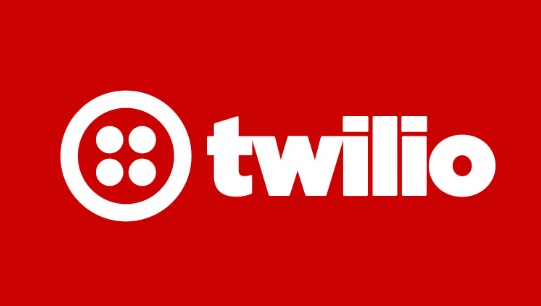
- Strengths: Extensive range of communication APIs, robust developer community, and a comprehensive platform with diverse features.
- Weaknesses: Pricing can be higher than some competitors, and customer support may be challenging to reach.
Vonage
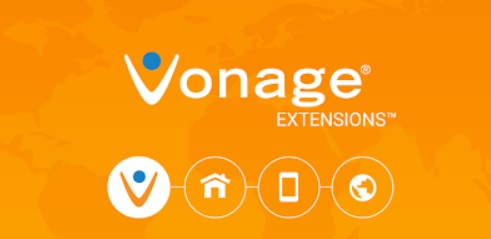
- Strengths: Strong unified communications (UCaaS) and contact center (CCaaS) offerings, along with a well-established brand.
- Weaknesses: CPaaS offerings may not be as comprehensive as Twilio’s, and costs can be higher for certain use cases.
Plivo
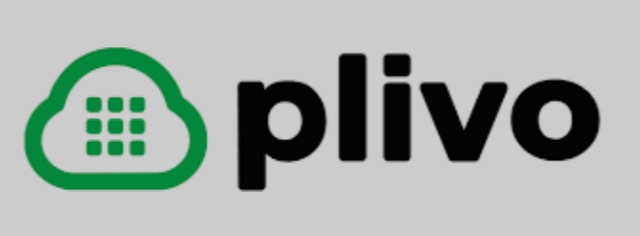
- Strengths: Developer-friendly platform, competitive pricing, and a focus on ease of use.
- Weaknesses: Limited product range compared to Twilio, and a smaller developer community.
Sinch

- Strengths: Strong emphasis on messaging and voice solutions, with a global reach through a large network of carriers.
- Weaknesses: May lack the feature richness of Twilio in areas such as video communication.
MessageBird
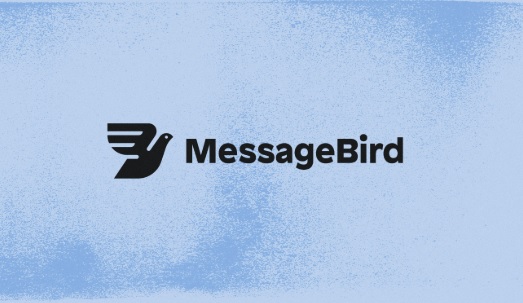
- Strengths: Comprehensive omnichannel communication platform, strong presence in Europe and emerging markets, and a focus on customer engagement.
- Weaknesses: Smaller scale compared to Twilio and Vonage, and may not have the same level of brand recognition in North America.
Investments and Future Plans of the Twilio Competitors
- Twilio: Investing in AI and machine learning for communication intelligence, expanding platform capabilities, and growing its partner ecosystem.
- Vonage: Enhancing unified communications and contact center offerings, expanding CPaaS capabilities, and integrating various platforms.
- Plivo: Expanding product range, investing in new communication technologies, and growing the developer community.
- Sinch: Expanding global reach, developing new messaging and voice solutions, and investing in platform infrastructure.
- MessageBird: Growing its omnichannel communication platform, expanding global presence, and developing new features for customer engagement.
Head-to-Head Comparison of the Twilio Competitors
- Twilio vs. Vonage: Twilio offers a broader range of communication APIs and a more developer-focused platform, while Vonage emphasizes unified communications and contact center solutions.
- Twilio vs. Plivo: Twilio is a more established player with a wider product range and a larger developer community, while Plivo excels in providing a user-friendly platform and competitive pricing.
- Sinch vs. Twilio: Sinch specializes in messaging and voice solutions with a strong global presence, while Twilio provides a more comprehensive array of communication APIs.
Consumer Experiences and Preferences of the Twilio Competitors
- Ease of Use: Developers and businesses prioritize platforms that are easy to use and integrate. Plivo and MessageBird are often praised for their developer-friendly interfaces, while Twilio’s platform can be more complex.
- Reliability: Reliable communication infrastructure is essential for businesses. Twilio and Vonage are known for their dependable platforms and extensive global reach.
- Features: Different businesses have varying communication needs. Twilio offers the most extensive range of features, while competitors may specialize in specific areas like messaging or voice.
- Pricing: Cost is a significant factor, especially for businesses with high communication volumes. Plivo and Sinch provide competitive pricing, while Twilio may be more expensive for certain applications.
- Support: Responsive and knowledgeable customer support is crucial for developers and businesses utilizing communication APIs.
Customer Satisfaction of the Twilio Competitors
- Twilio: Generally receives positive ratings for platform capabilities and its developer community, although some users have reported challenges with customer support.
- Vonage: Customer satisfaction varies based on specific products and services, but the company benefits from a long history in the communications industry.
- Plivo: Frequently praised for ease of use, competitive pricing, and a developer-friendly platform.
- Sinch: Generally receives positive feedback for reliable messaging and voice solutions, along with its global reach.
- MessageBird: Known for its omnichannel communication platform and strong focus on customer engagement.
Conclusion
Twilio is a leading provider of communication APIs, but it faces competition from various companies with different strengths and weaknesses. The CPaaS market is evolving, with new technologies and communication channels emerging regularly. When choosing a CPaaS provider, businesses should consider their specific needs, budget, and preferences regarding features, ease of use, and customer support. By understanding the competitive landscape and the offerings of each vendor, businesses can make informed decisions to enhance their communication capabilities and improve customer engagement.
Twilio Competitors: Frequently Asked Questions (FAQ)
Based on the detailed information provided about Twilio and its competitors in the CPaaS (Communications Platform as a Service) market, I’ve prepared a comprehensive FAQ that covers the key aspects of this competitive landscape.
General Market Questions
Q: What is CPaaS and why is it important?
A: CPaaS (Communications Platform as a Service) is a cloud-based platform that enables developers to integrate communication features like voice, messaging, and video into their applications using APIs. It’s important because it allows businesses to build custom communication solutions without investing in expensive infrastructure, enhancing customer engagement and operational efficiency.
Q: Who are the main competitors to Twilio in the CPaaS market?
A: The main competitors to Twilio include Vonage (which acquired Nexmo), Plivo, Sinch, and MessageBird. Each offers different strengths in the communications API space.
Q: What is Twilio’s approximate market share in the CPaaS industry?
A: Twilio holds approximately 50% of the global CPaaS market, making it the leading provider in this space.
Company-Specific Questions
Q: How does Vonage compare to Twilio?
A: Vonage offers a strong combination of CPaaS (through its Nexmo acquisition), UCaaS (Unified Communications), and CCaaS (Contact Center) solutions. While Twilio has a more extensive range of communication APIs and a stronger developer focus, Vonage leverages its established brand and integrated communications approach. Vonage holds about 15% market share.
Q: What makes Plivo attractive as a Twilio alternative?
A: Plivo is known for its developer-friendly platform, competitive pricing, and ease of use. While smaller than Twilio (with approximately 10% market share), it’s growing rapidly and offers core communication APIs including Voice, Messaging, Lookup, and Fax APIs.
Q: How does Sinch differentiate itself in the CPaaS market?
A: Sinch focuses primarily on messaging and voice solutions with a strong global carrier network. With about 8% market share, it specializes in SMS, WhatsApp, RCS messaging, and voice APIs, making it particularly attractive for businesses with specific messaging needs.
Q: What is MessageBird’s position in the market?
A: MessageBird holds approximately 5% market share with a strong presence in Europe and emerging markets. It offers an omnichannel communication platform that includes SMS, Voice, WhatsApp, Email, and Instagram integration, along with workflow automation tools.
Feature and Capability Questions
Q: Which Twilio competitor offers the most comprehensive product range?
A: While none match Twilio’s full range of offerings, Vonage provides the most comprehensive alternative with its combination of CPaaS, UCaaS, and CCaaS solutions. MessageBird also offers a wide range of communication channels through its omnichannel platform.
Q: Which competitor offers the most cost-effective solution?
A: Plivo is generally recognized for its competitive pricing structure, making it attractive for businesses concerned about costs, especially those with high communication volumes.
Q: Are there any specialized areas where competitors outperform Twilio?
A: Yes, several competitors excel in specific areas:
- Vonage has stronger unified communications and contact center solutions
- Sinch has particular strength in global messaging
- MessageBird excels in omnichannel communication and customer engagement tools
- Plivo is known for simplicity and ease of implementation
Technical and Implementation Questions
Q: How do these platforms compare in terms of ease of integration?
A: Plivo and MessageBird are often praised for their developer-friendly interfaces and ease of integration. Twilio’s platform offers more capabilities but can be more complex to implement. Vonage’s integration experience varies across their different product lines.
Q: Which platform has the best developer support and resources?
A: Twilio has the largest developer community and most extensive documentation, but Plivo is frequently praised for its responsive support. MessageBird and Sinch also provide good developer resources but on a smaller scale than Twilio.
Q: How do these platforms compare in terms of global reach?
A: All major players offer global capabilities, but with different strengths:
- Twilio and Vonage have the most extensive global infrastructure
- Sinch has particularly strong carrier relationships globally
- MessageBird has strong coverage in Europe and emerging markets
Business Considerations
Q: What should businesses consider when choosing between Twilio and its competitors?
A: Businesses should consider:
- Specific communication needs (voice, messaging, video, etc.)
- Budget constraints and expected communication volume
- Developer resources and technical expertise
- Geographic coverage requirements
- Need for additional features like contact center capabilities
- Importance of reliability vs. cost
- Quality of customer support
Q: Which Twilio competitor is best for small businesses?
A: Plivo is often considered ideal for small businesses due to its competitive pricing and ease of use. MessageBird also offers accessible solutions for smaller organizations, particularly those in Europe.
Q: Which competitor is most suitable for large enterprises?
A: Vonage is well-positioned for large enterprises, especially those needing unified communications alongside CPaaS capabilities. Twilio remains the most comprehensive option, but Sinch and MessageBird can also serve enterprise needs, particularly for specific use cases.
Q: How are these companies investing in future technologies?
A: All major competitors are investing in AI and machine learning:
- Twilio is focusing on communication intelligence and expanding platform capabilities
- Vonage is enhancing unified communications and integrating platforms
- Plivo is expanding its product range and developer community
- Sinch is developing new messaging solutions and expanding global reach
- MessageBird is growing its omnichannel platform and customer engagement features
Market Trends and Outlook
Q: How is the CPaaS market expected to evolve?
A: The CPaaS market is expected to continue growing rapidly with increased focus on AI integration, omnichannel capabilities, and specialized industry solutions. Consolidation through mergers and acquisitions is likely to continue, as seen with Vonage’s acquisition of Nexmo.
Q: What emerging technologies might disrupt the current competitive landscape?
A: AI-powered communications, advanced analytics, new messaging channels, enhanced video capabilities, and deeper integration with business processes are all potential disruptors that could shift competitive advantages among these companies.
Q: How are customer preferences changing in the CPaaS market?
A: Customers increasingly demand omnichannel capabilities, seamless integration with business systems, advanced analytics, and AI-powered features. There’s also growing emphasis on privacy, security, and compliance with regional regulations. If you liked this review, you can also review our article on technology posts here.
